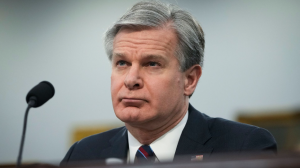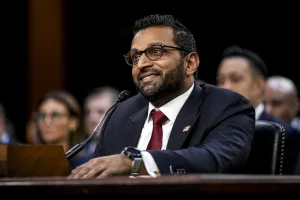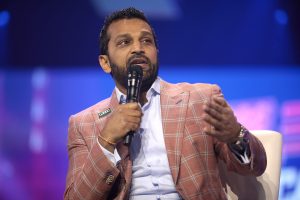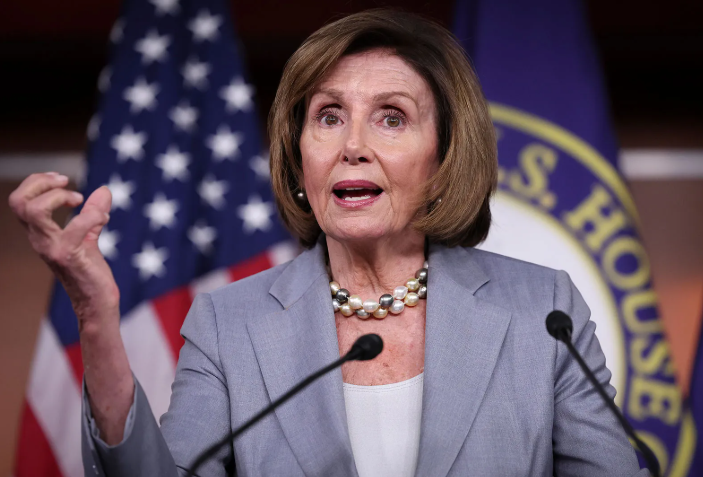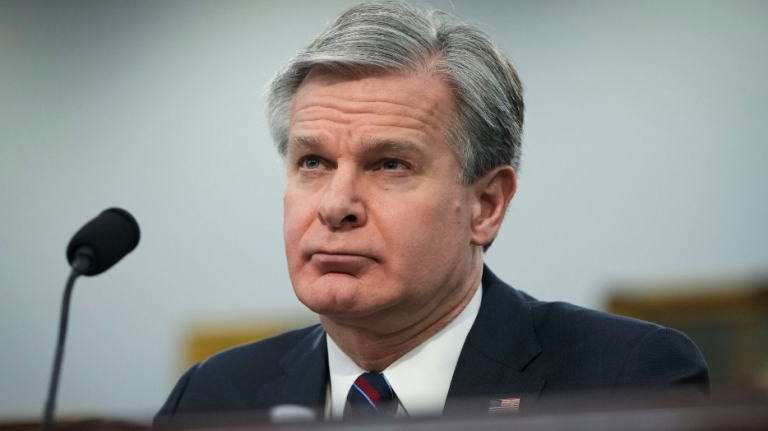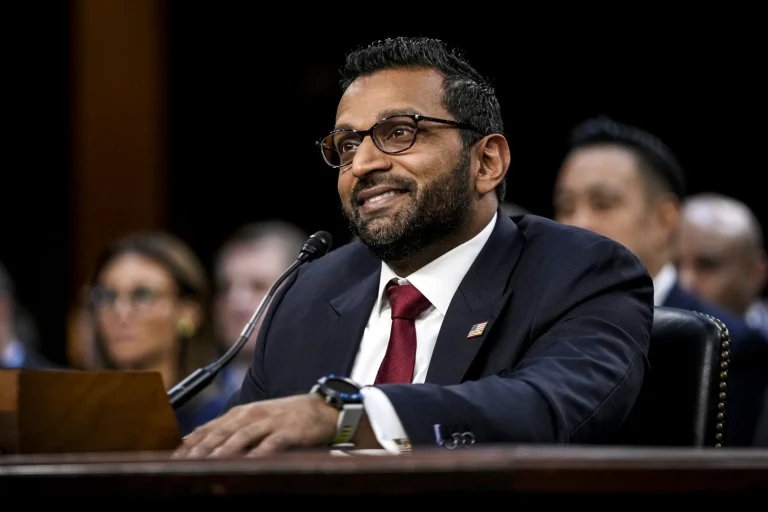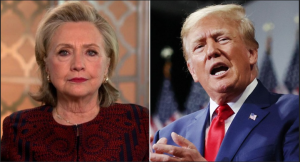After nearly 40 years in public office, former House Speaker Nancy Pelosi has finally addressed what she claims is her true motivation for entering politics. The long-serving Democratic representative from California—one of the most powerful and polarizing figures in American political history—shared her personal explanation during a recent interview with former White House Press Secretary Jen Psaki on MSNBC’s The Briefing.
Pelosi’s answer was simple yet sweeping: “My whole mission in politics is about the children.”
While the sentiment might strike some as noble or even maternal, the response ignited immediate backlash on social media, where critics have long questioned Pelosi’s financial gains during her time in Congress and expressed skepticism over her true intentions.
A Lifetime in Politics, Under a Magnifying Glass
Pelosi, now in her 80s, has been a mainstay in Democratic politics since the 1980s. She was elected to Congress in 1987 and made history in 2007 by becoming the first woman to serve as Speaker of the House—a position she held twice, from 2007 to 2011 and again from 2019 to 2023. Over her long career, she earned a reputation as a master strategist, an unyielding party leader, and a polarizing figure depending on one’s political perspective.
But beyond her legislative accomplishments and political influence, Pelosi has drawn widespread attention for her personal wealth. She and her husband, Paul Pelosi, a venture capitalist and businessman, are worth tens of millions of dollars—a fortune that has raised eyebrows among watchdog groups and political opponents alike. The scrutiny has been especially fierce in light of stock trades allegedly made by Paul Pelosi that coincided with major policy shifts in Congress.
Social Media Isn’t Buying It
When Pelosi shared her heartfelt mission—”the children”—in her MSNBC interview, many online users were quick to mock or outright reject her stated purpose. A clip from the interview, posted to X (formerly Twitter) by the account “Western Lensman,” was accompanied by a sardonic caption: “Her bank account would beg to differ.”
The responses ranged from humorous to accusatory. “Does that include all of the aborted, missing, and exploited children?” one commenter asked, casting Pelosi’s comments in a sharply critical light. Another wrote, “I’ve never heard her once talk about ‘the children’ over her entire political career hahaha.”
To her supporters, the dismissals are just more of the same partisan vitriol that Pelosi has endured for decades. To her detractors, however, the discrepancy between her stated motivations and her perceived actions is too stark to ignore.
Financial Controversies and Accusations of Insider Trading
A recurring theme in criticism of Pelosi has been her financial acumen—or, more pointedly, the timing of stock trades made by her husband during her tenure in office. While there has been no direct evidence proving wrongdoing, watchdog groups and independent journalists have flagged suspicious activity over the years.
The issue has grown to such proportions that bipartisan support has emerged for legislation banning stock trading by sitting members of Congress and their immediate family members. Pelosi, at times hesitant on the matter, has faced pressure from both the left and right to support such measures. She ultimately expressed openness to stock trading bans, but not without first resisting calls for reform.
These financial concerns have painted a picture—fair or not—of a politician whose personal fortunes grew alongside her political power. In the eyes of critics, this contradicts the altruistic motivations Pelosi claims now to have guided her career.
The Roots of Pelosi’s Political Journey
Despite the backlash, Pelosi’s path into politics was grounded in deep familial and civic roots. Born in Baltimore in 1940 as the youngest of seven children, Pelosi was raised in a highly political household. Her father, Thomas D’Alesandro Jr., served as both a congressman and mayor of Baltimore. Politics was quite literally the family business.
After studying political science at Trinity College in Washington, D.C., Pelosi married Paul Pelosi and eventually relocated to San Francisco, where she became deeply involved in Democratic politics. She was a party fundraiser, strategist, and insider long before she ran for office herself.
Her political career formally began in 1976, when she helped California Governor Jerry Brown during his presidential primary campaign. She rose through Democratic Party ranks, eventually serving as chair of the California Democratic Party in the early 1980s. When a congressional seat in San Francisco opened following the death of Rep. Sala Burton in 1987, Pelosi was tapped as the successor.
From there, her career took off. Over the next three decades, she became a dominant force in the House of Representatives, known for her legislative skill, unwavering loyalty to her caucus, and ability to shepherd massive bills—like the Affordable Care Act—through a fractured and often dysfunctional Congress.
Political Legacy: Defender or Divider?
Nancy Pelosi’s legacy is undeniably significant. She played a leading role in shaping health care reform, stimulus packages, and impeachment proceedings. She is admired by many in the Democratic Party for her ability to hold a fractious coalition together and for standing firm in the face of aggressive opposition from Donald Trump and his allies.
However, she has also faced criticism for being too entrenched in establishment politics, and for allegedly prioritizing party power over grassroots change. Many progressives have long pushed for younger leadership, arguing that Pelosi’s style and priorities belong to a bygone era of Democratic politics.
Even her staunchest defenders acknowledge that Pelosi’s tenure reflects the complexities and contradictions of political leadership in a modern media age: pragmatic and ideological, maternal and Machiavellian, revered and reviled—often all at once.
What “The Children” Means in Context
In fairness to Pelosi, it’s not entirely out of character for her to emphasize concern for future generations. Throughout her career, she has frequently referenced children in the context of health care, education, environmental protection, and gun control.
In her first speech as Speaker in 2007, Pelosi said, “This is an historic moment for the Congress and for the women of this country. It is a moment for which we have waited over 200 years…For our daughters and our granddaughters, today we have broken the marble ceiling.”
Her emphasis on “the children” may not be as prominently branded as some politicians’ talking points, but it has been a recurring theme. Whether it resonates with a skeptical public is another question altogether.
Final Thoughts
Whether Pelosi’s stated motivation will shift public perception remains to be seen. In a political climate where authenticity is frequently questioned and motives are often assumed to be self-serving, her declaration might seem, at best, overdue—and at worst, hollow.
Nevertheless, with her decades-long career now largely behind her, Pelosi appears keen to define her own legacy. Her MSNBC interview offered a glimpse of how she wishes to be remembered—not as a career politician enriched by power, but as a public servant guided by a simple mission: “the children.”
Whether the American public accepts that narrative is still up for debate.
